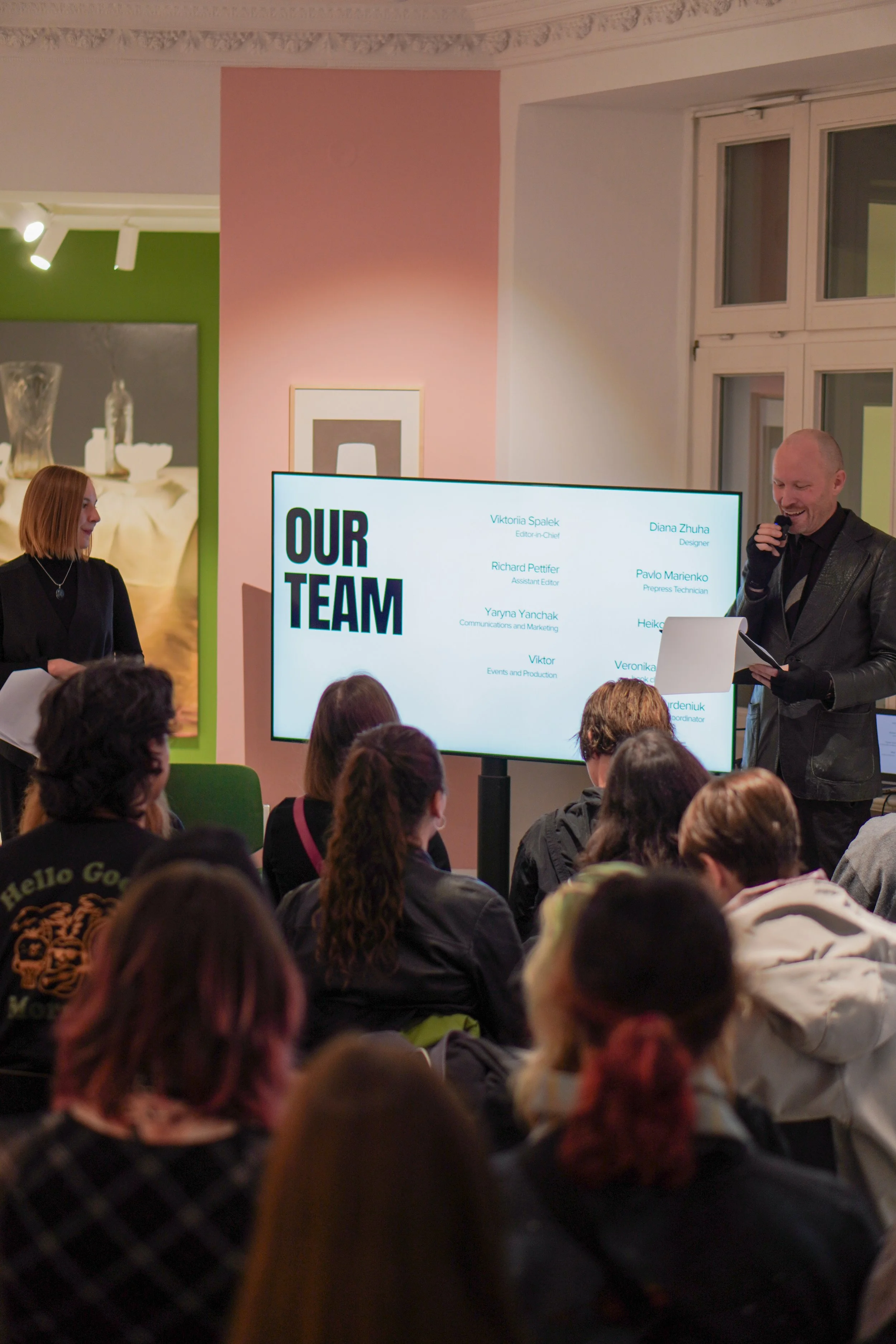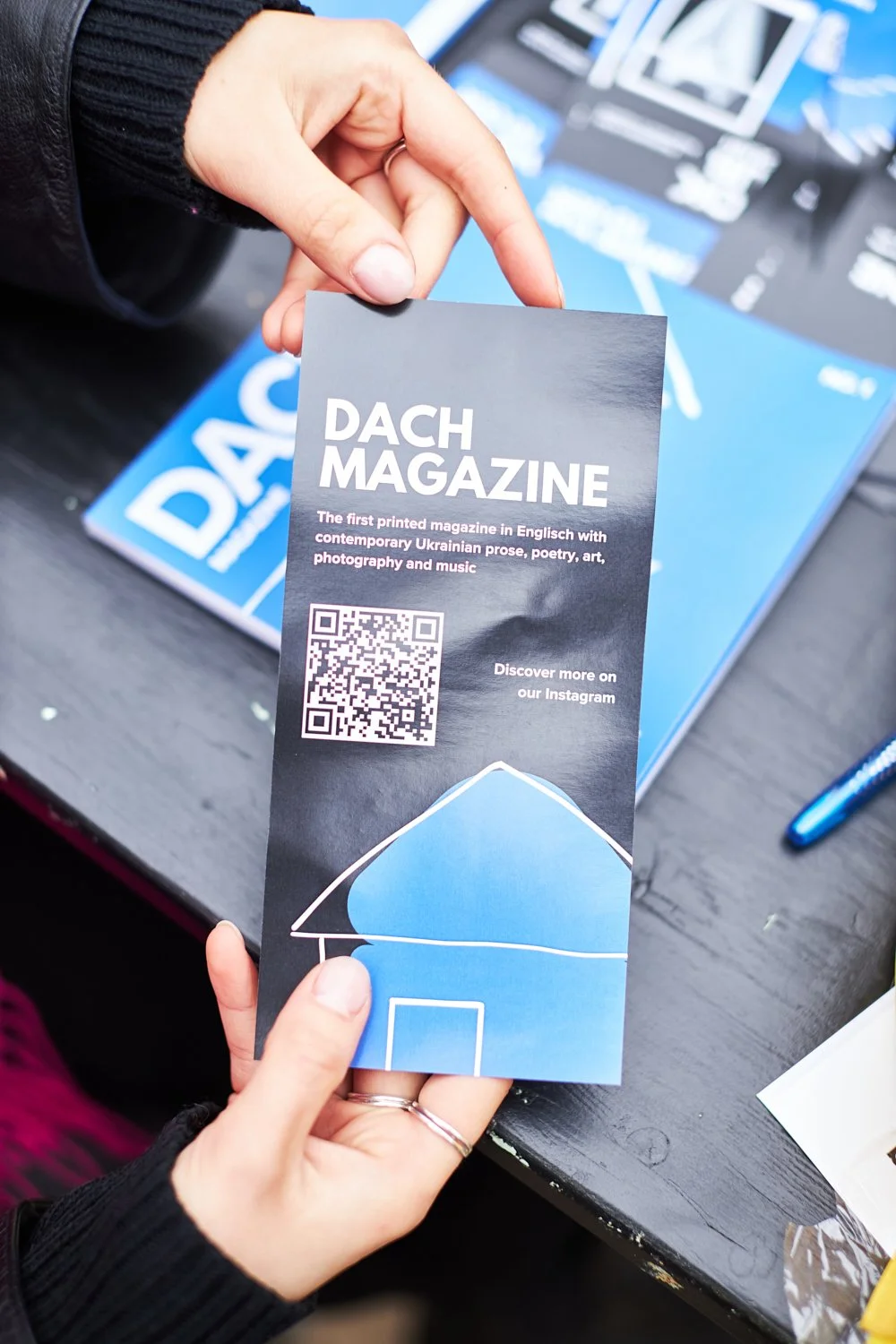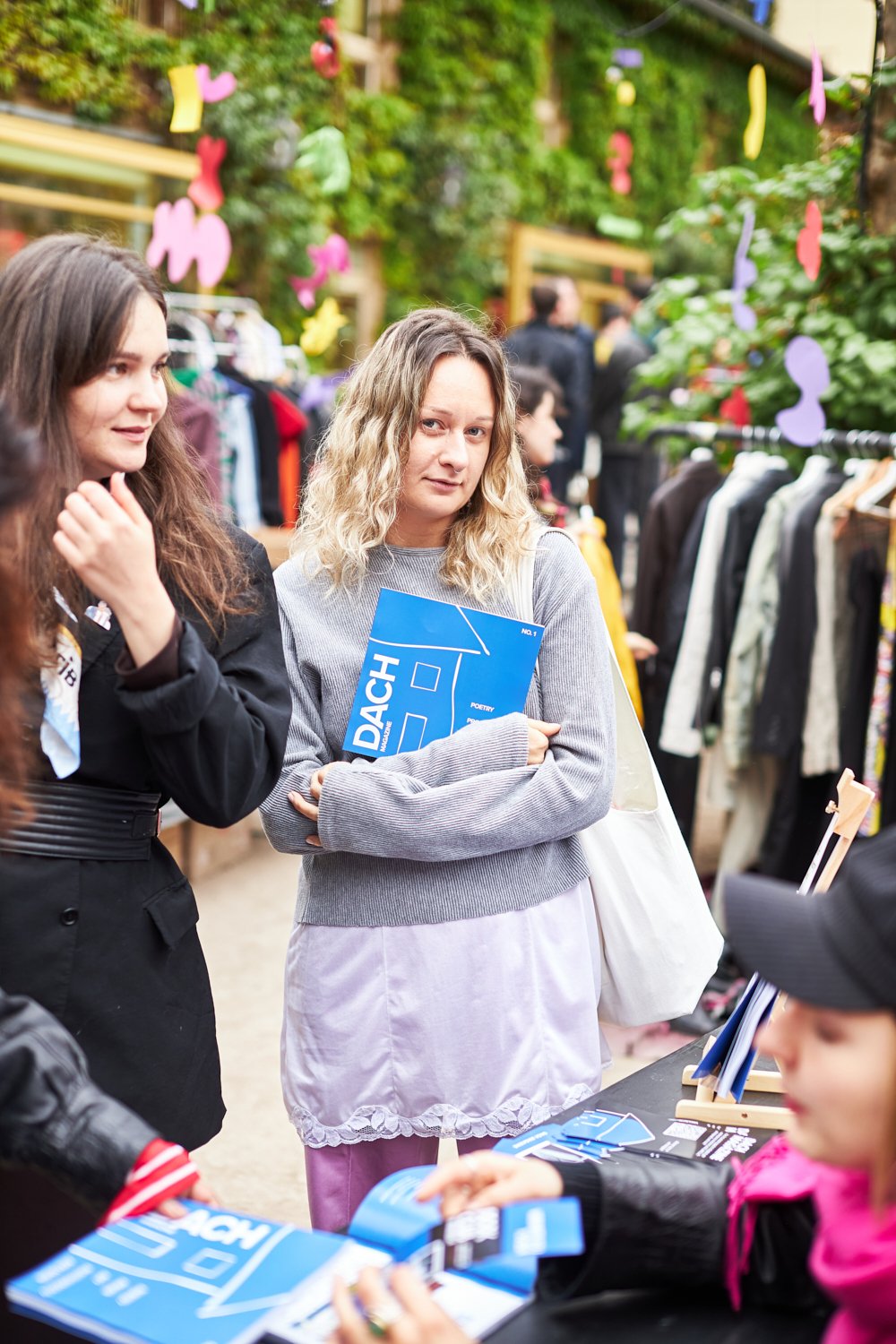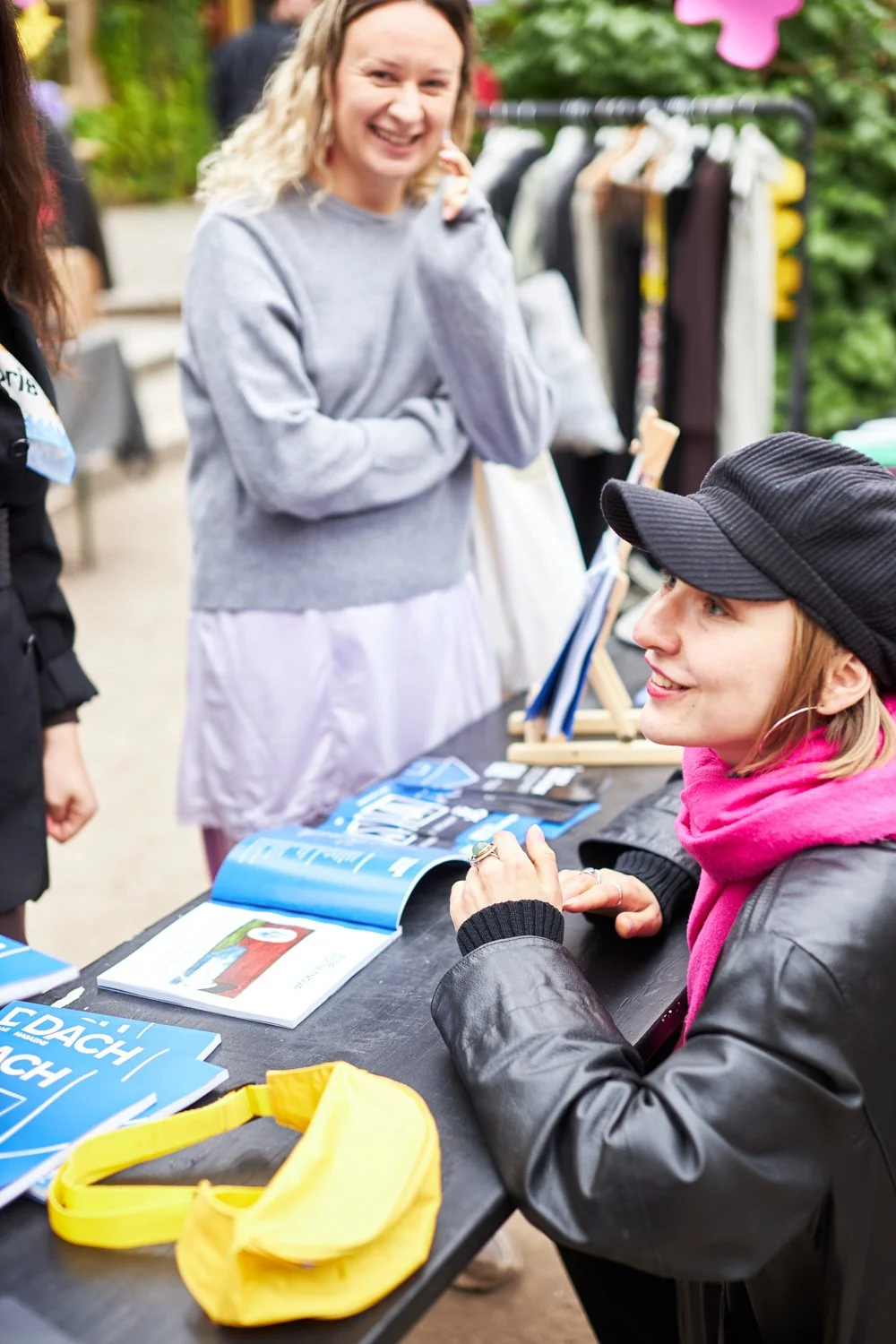DACH — UNDER ONE ROOF
Dach Magazine is an English-language magazine showcasing contemporary Ukrainian artists, founded in Berlin, Germany, in 2025.
The word “Dach” has the same meaning in both German and Ukrainian—roof. This was one of those rare cases when the name came on its own, rather than being the result of a long search.
Everything here is created by Ukrainian artists—both in Ukraine and abroad. They were created today, yesterday, and will be tomorrow. Made before and during the war. The past is being reinterpreted by the present, while what is created today will be understood by the future.
This is a testament to the existence of contemporary Ukrainian culture, carefully gathered on these pages. It is an individual experience, transformed into art, becoming a universal language.
How lucky we are to have brought these talented people together under one “roof.” And what a pleasure it was to read these works, to move through every word and sentence, diving deeper into meanings with an infinite depth. Bringing them together and translating them into English would have been impossible without Richard Pettifer. In his search for the perfect synonym and with a careful, individualised approach to each author, he helped these works find their own voice in English.
In our first issue, we realise the unexpected connections between completely different authors, resonating with each other across the pages of the magazine.
“…the going-out suit” by O. Ponomarenko, which opens this cultural journey, immediately paints the harshness of existence, pressing down on the shoulders of Grandpa Ivan and pulling him toward the earth. In the simplicity of fishing, this main character, despite all of life’s difficulties, finds that very same “ohm—a sound of meditative abhorrence” from T. Lehka’s poem.
That same simplicity of human relationships is delicately portrayed by I. Hadetska in the story “Nazar and Dara”. O. Repa, in her poem, writes: "For the abyss is not just a pit, but an endless space." And it is within this space that B. Korohod’s characters wander in search of home.
The superheroes from Vadym Herman’s poem know no language, while the protagonist of J. Perehuda’s “Linguistic Poem” persistently learns a foreign one to confess his love.
Quietone, from Marko Teren’s short story of the same name, cannot speak, while the soldier from “The Salt of the Earth” by O. Zaeits cannot tell.
The absurdity of our reality is satirised in Y. Kytsia’s work, where Mr. Chickenson, in an attempt to restore order in the city, merely changes the street names. Meanwhile, N. Sever’s heroine undergoes a voluntary “Check-up” of her entire body, which provides not so much answers as it does questions. Da$$ha, who eats in front of men on camera in D. Suzdalova’s work, defies everything in her path—like everyone who has ever been on a difficult one.
It was difficult for us to choose among the artists and photographers. And even harder – to pick just one work from the presented authors (as you will see on the pages, we didn’t always manage to do so). To avoid limiting art to words alone, I want to introduce the wonderful artists: M. Lakhno, R. Kadyrova, I. Beschetnova, A. Vlasenko, D. Zhuha, Y. Kostiuk, D. Mariia, O. Fokova, Y. Leonets, P. Daniela, R. Vanhazy, and R. Khropko, whose works you will find in the magazine.
Bringing everything together on the pages of the magazine would have been impossible if Diana Zhuha, who lives on another continent, with a different time zone and two jobs, had not sacrificed her free time and put all her professional skills into creating the design of these pages.
The creation of a playlist with contemporary Ukrainian music became possible thanks to a chance encounter with Heiko Jungnitz, who organizes events with Ukrainian musicians in Berlin as part of the Klikerklub project. This result became the very rhythm of the idea that resonated from the very beginning.
And the magazine could only be created when, amidst a turbulent reality, peace and self-trust were found. So when my friend, in response to my words, "I had this idea to create a magazine featuring Ukrainian literature, art, and photography," asked, "So why not?" – I had no arguments to object. And here we are, all together.
I am grateful to the idea that entrusted itself to my hands.
Now live and grow
Viktoriia Spalek







